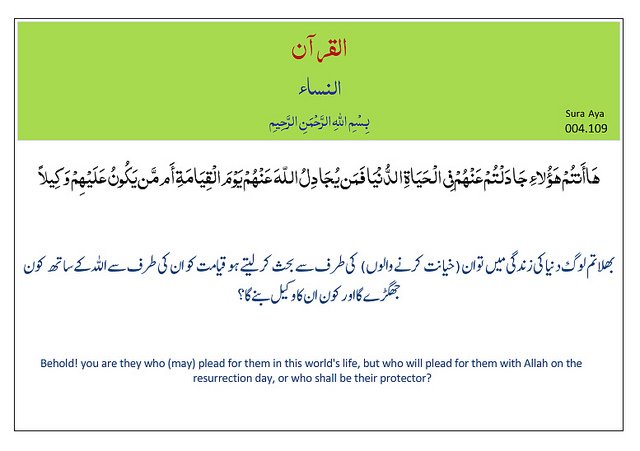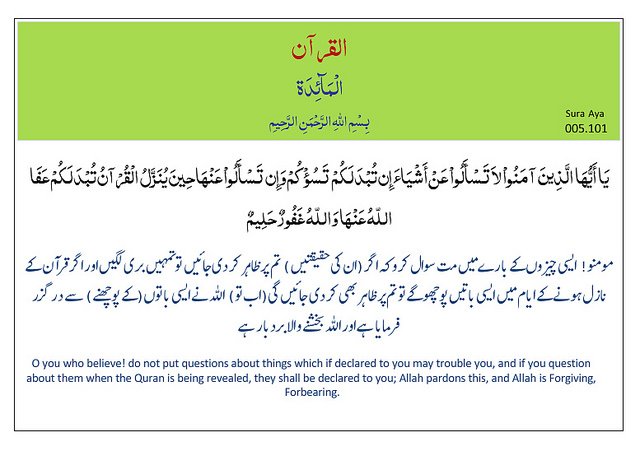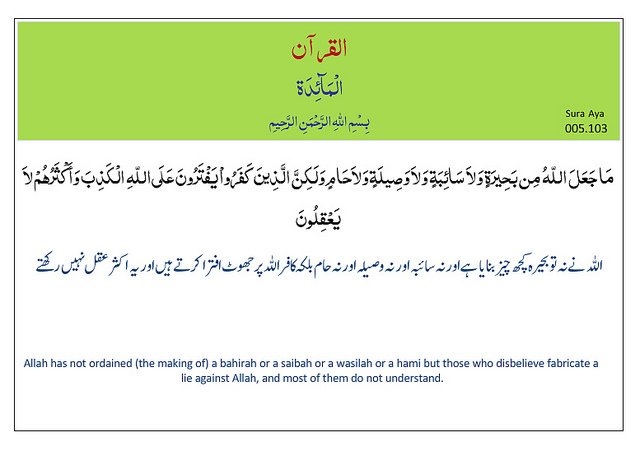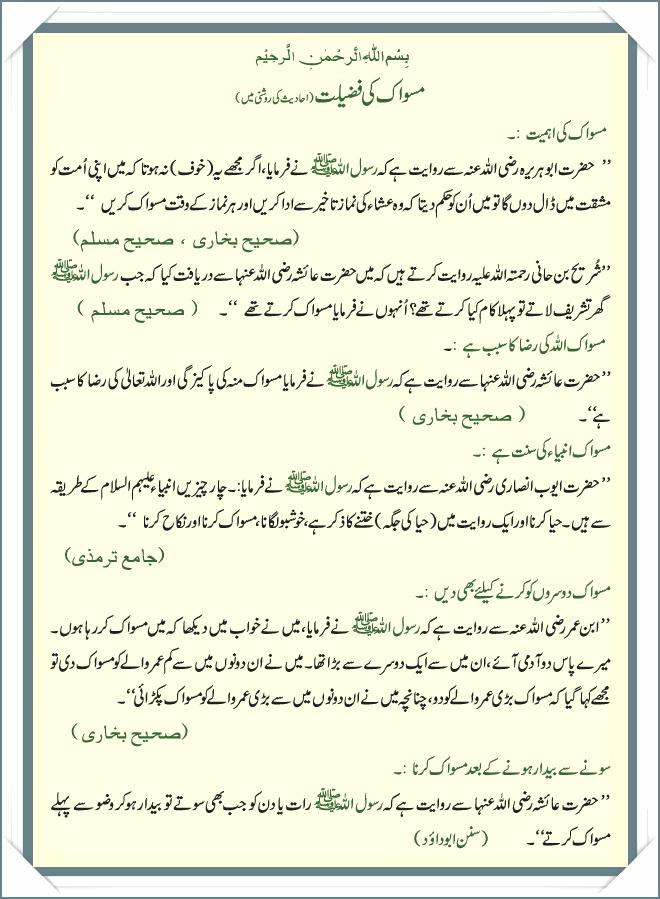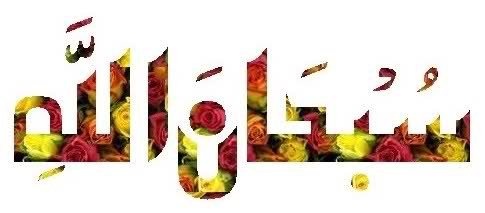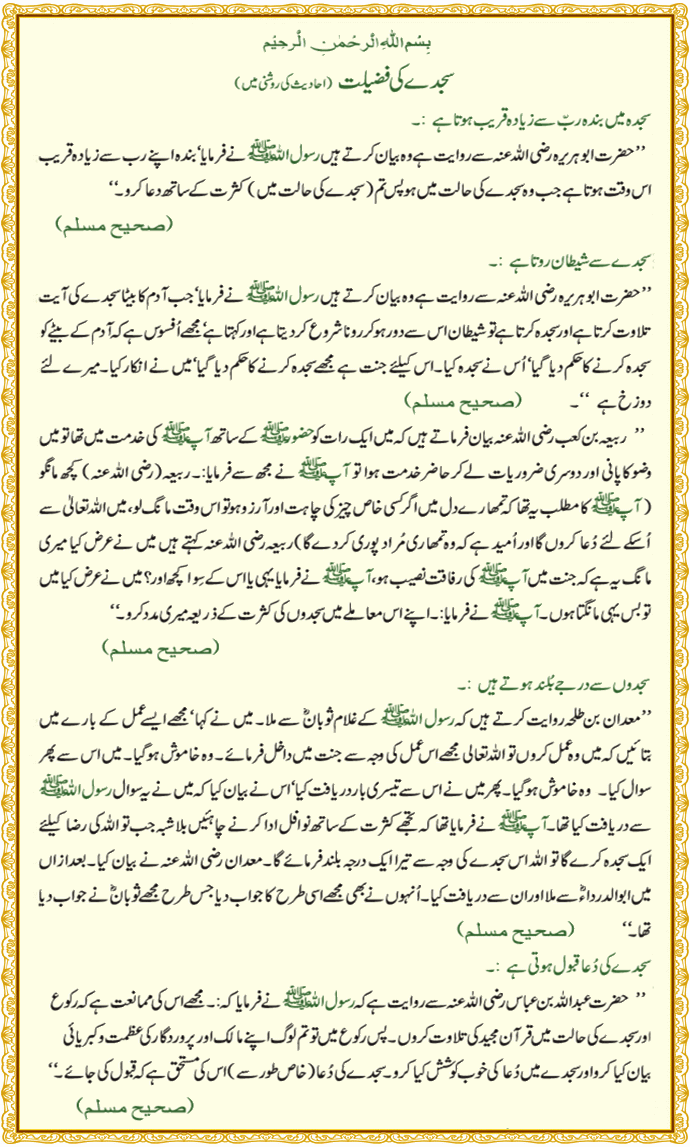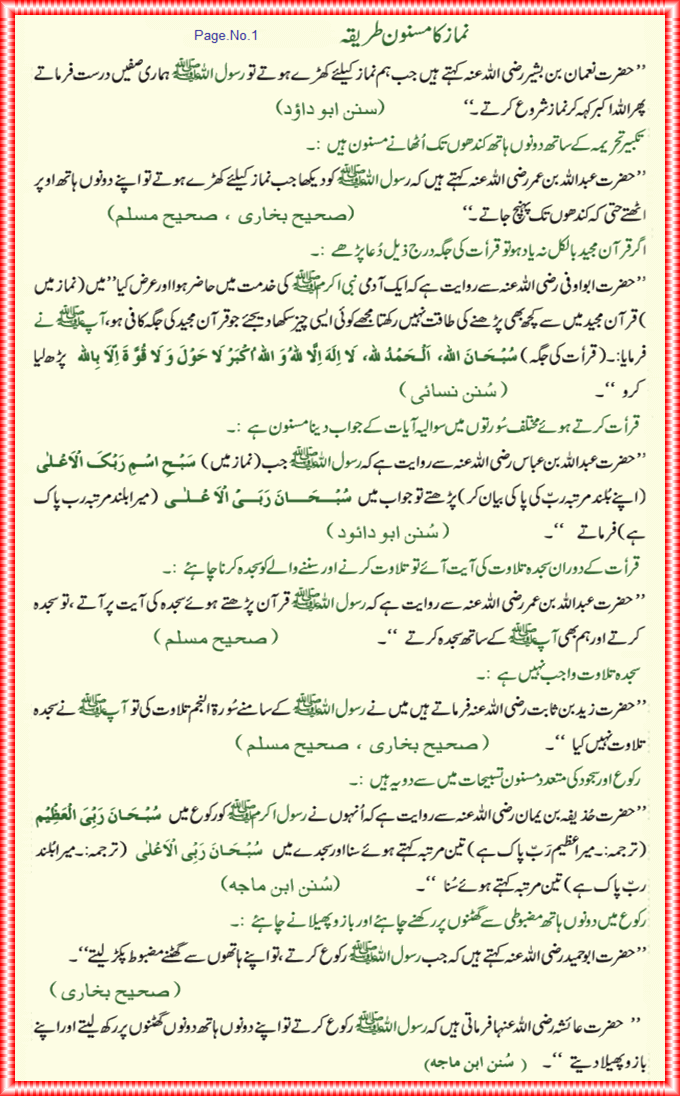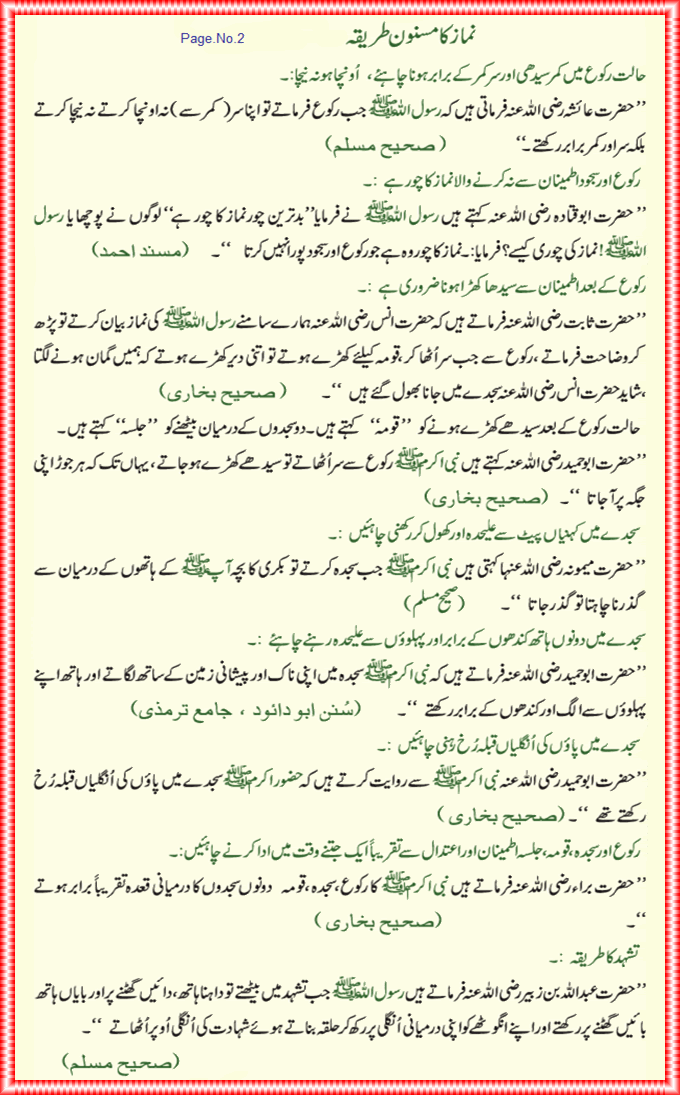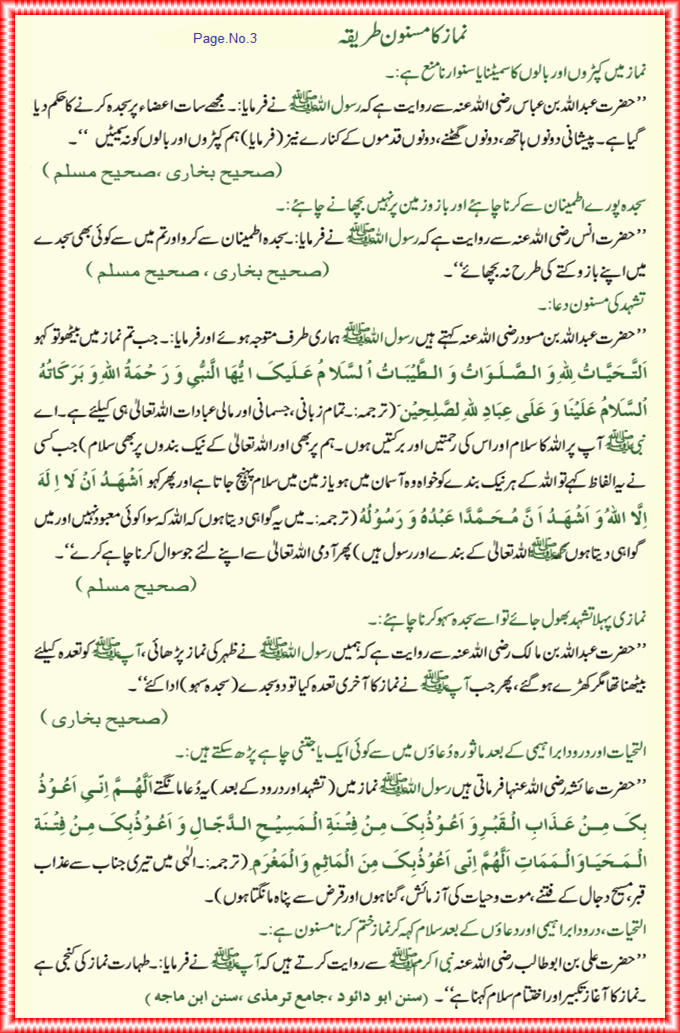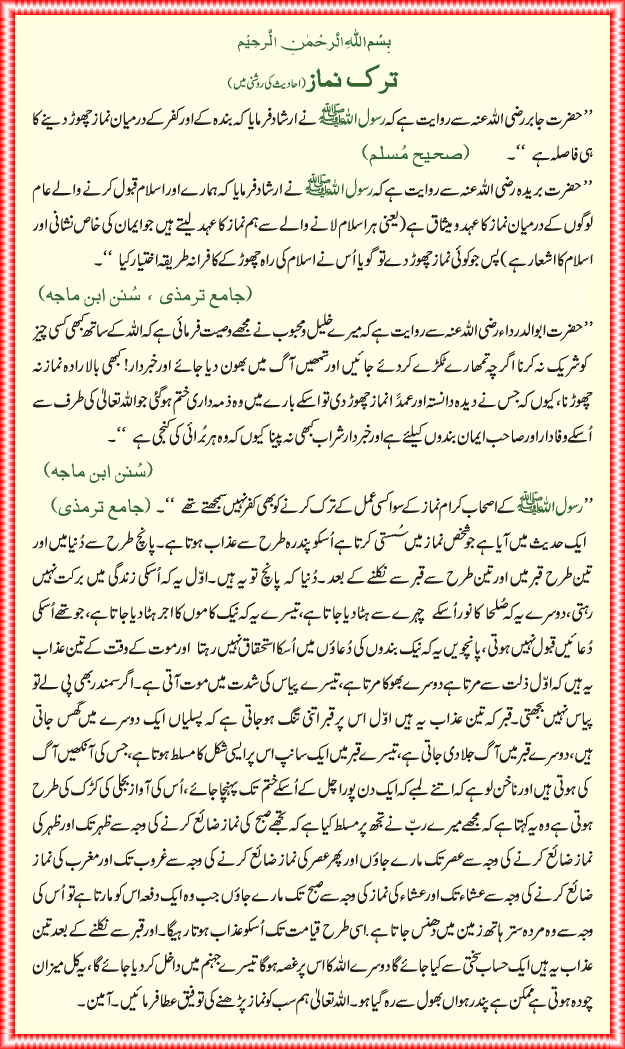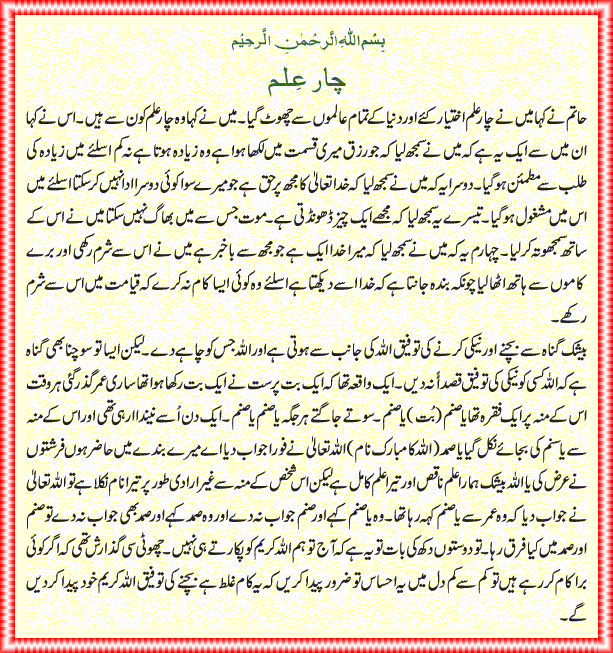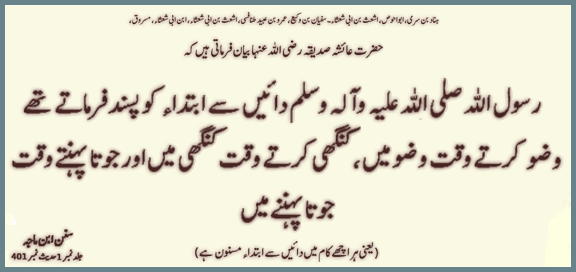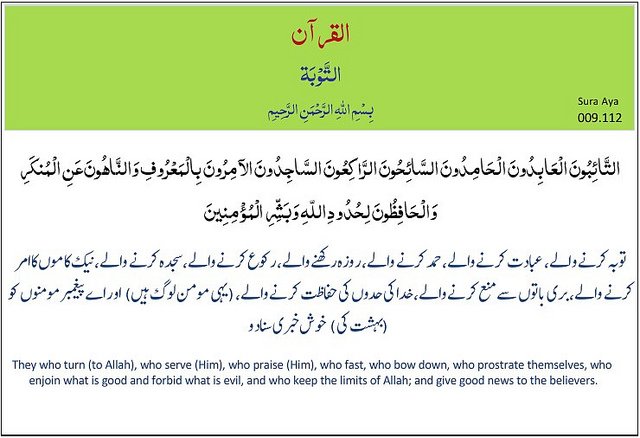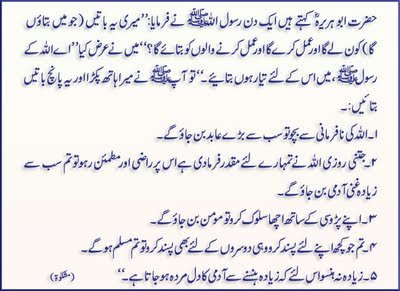Re: تم ایسی چیزوں کی نسبت سوال مت کیا کرو
Assalam Alekum Dear Sister Ayesha :statisfie
Brother Iqbal dont like to answer questions,and may be thats why Degue fever still exists :hmm: Let me answer that for you :statisfie
The first Ayah.
(5:101) Believers! Do not ask of the things which, if made manifest to you, would vex you; for, if you should ask about them while the Qur'an is being revealed, they will be made manifest to you. Allah has pardoned whatever happened in the past. He is All-Forgiving, All-Forbearing.
Explanation.
People used to ask the Prophet (peace be on him) many questions which were of no practical relevance to either religious or day-to-day affairs. Once, for instance, a person asked the Prophet (peace be on him) in the presence of a crowd: 'Who is my real father?' Likewise, many people used to ask unnecessary questions about legal matters. By these uncalled for inquiries they sought knowledge of matters which had for good reasons, been deliberately left undetermined by the Law-giver. In the Qur'an, for example. Pilgrimage had been declared obligatory. A person who became aware of this came to the Prophet (peace be on him) and inquired: 'Has it been made obligatory to perform it every year?' To this the Prophet (peace be on him) made no reply. When he inquired for the second time the Prophet (peace be on him) again stayed silent. On being asked for the third time, he said: 'Pity on you! Had I uttered "Yes" in reply to your question, it would have become obligatory to perform it every year. And then you would not have been able to observe it and would have been guilty of disobedience.' (See Bukhari, 'Riqaq', 22; 'Zakah', 53; I'tisam', 3; 'Adab', 6; Muslim, 'Aqdiyah', 10, 11, 13, 14; Darimi, 'Riqaq', 38; Muwatta', 'Kalam', 20; Ahmad b. Hanbal, Musnad, vol. 2, pp. 327, 360, 367; vol. 4, pp. 246, 249, 250, 251, 255 - Ed.)
The Prophet (peace be on him) discouraged people from being over-inquisitive and unnecessarily curious about every question. We find in the Hadith the following saying from the Prophet (peace be on him): 'The worst criminal among the Muslims is the one who inquired about something which had not been made unlawful, and then it was declared so, because of his inquiry.' (Bukhari, I'tisam', 3; Muslim, Fada'il', 132, 133; Abu Da'ud, 'Sunnah', 6 - Ed.) According to another tradition the Prophet (peace be on him) said: 'God has imposed upon you certain obligations, do not neglect them; He has imposed certain prohibitions, do not violate them; He has imposed certain limits, do not even approach them; and He has remained silent about certain matters - and has not done so out of forgetfulness - do not pursue them.' (See Towards Understanding the Qur'an, vol. I, Surah 2, n. 110 - Ed.)
In both these traditions an important fact has been called to our attention. In matters where the Law-giver has chosen to lay down certain injunctions only broadly, without any elaborate details, or quantitative specifications, He has done so not because of neglect or forgetfulness. Such seeming omissions are deliberate, and the reason thereof is that He does not desire to place limitations upon people, but prefers to allow them latitude and ease in following His commandments. Now there are some people who make unnecessary inquiries, cause elaborately prescribed, inflexibly determined and restrictive regulations to be added to the Law. Some others, in cases where such details are in no way deducible from the text, resort to analogical reasoning, thereby turning a broad general rule into an elaborate law full of restrictive details, and an unspecified into a specified rule. Both sorts of people put Muslims in great danger. For, in the area of belief, the more detailed the doctrines to which people are required to subscribe, the more problematic it becomes to do so. Likewise, in legal matters, the greater the restriction, the greater the likelihood of violation.
The second Ayah.
(5:103) Allah has neither appointed (cattle devoted to idols such as) Bahirah, Sa'ibah, Wasilah nor Ham;but those who disbelieve forge lies against Allah and of them most have no understanding (and therefore succumb to such superstitions).
Explanation.
Some people first indulged in hair-splitting arguments about their laws and dogma, and thereby wove a great web of credal elaborations and legal minutiae. Then they became enmeshed in this same web and thus became guilty of dogmatic errors and the violation of their own religious laws. The people referred to here are the Jews, and the Muslims who followed in their footsteps and left no stone unturned, despite the warnings contained in the Qur'an and in the sayings of the Prophet Muhammad (peace be on him).
118. Just as, in the Indian subcontinent, cows, oxen and goats are set free after being consecrated either to God or to some idol or shrine or to some saintly person, and just as people consider it prohibited either to put them to work, to slaughter them or to derive any other kind of benefit from them, so the Arabs of the Jahiliyah period also let loose certain animals after consecrating them. Such animals were variously named.
Bahirah was the name of a female camel which had already borne five young, the last of which was a male. The practice was to slit the ear of such a camel and then let her loose. Thereafter no one could ride her, use her milk, slaughter her or shear her hair. She was entitled to graze and drink water wherever she liked.
Sa'ibah was the name of either a male or female camel which had been let loose after consecration as a mark of gratitude in fulfilment of a vow taken for either the recovery from some ailment or delivery from some danger. In the same way the female camel which had borne ten times, and each time a female, was also let loose.
Wasilah. If the first kid born to a goat was a male, it was slaughtered in the name of the deities; but if it was a female, it was kept by the owners for themselves. If twins were born and one of them was a male and the other a female goat, the male was not slaughtered but rather let loose in the name of the deities. This male goat was called wasilah.
Ham. If the young of camels in the second degree of descent had become worthy of riding they were let loose. Likewise, if ten offspring had been borne by a female camel she was also let loose, and called ham.
And Jazakallahu Khyran for sharing those ayahs.Reading the Explanation helped much.My Mother asked me about the explanation of second ayah and i told her i'll look into it and tell ya.Alhamdulillah i can answer her now.Thanks for the reminder :statisfie


